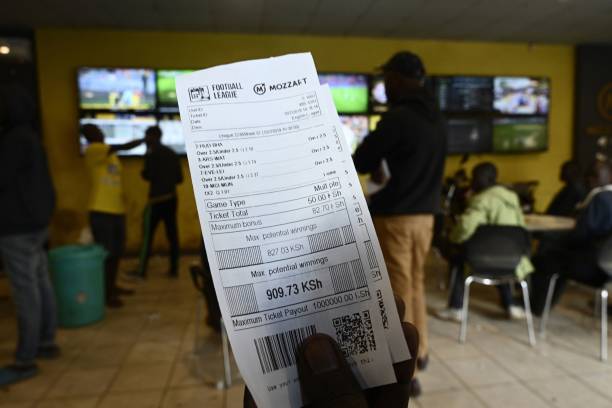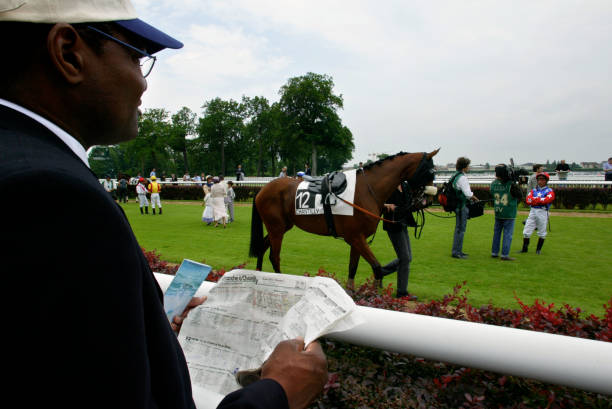
Sports betting is not just about numbers, statistics, or odds—it’s also about psychology. Many bettors fall into emotional traps that lead to poor decision-making and financial losses. The most successful bettors understand the importance of discipline, self-control, and strategic thinking. In this guide, we explore the mindset of winning bettors and how to avoid common psychological pitfalls in gambling.
1. Understanding the Role of Psychology in Betting
Psychology plays a critical role in betting behavior. Whether you are a casual bettor or a professional, your decisions are often influenced by cognitive biases and emotions. Recognizing these influences is the first step in staying disciplined and making smarter bets.
Key Psychological Factors:
- Risk Perception: People often overestimate or underestimate the risks involved in betting.
- Emotional Decision-Making: Many bettors place bets based on gut feelings rather than logic and analysis.
- Cognitive Biases: Psychological tendencies such as the gambler’s fallacy and confirmation bias can cloud judgment.
- Impulsivity: Betting without proper research or strategy due to excitement or frustration.

2. Common Psychological Pitfalls in Sports Betting
A. The Gambler’s Fallacy
One of the most well-known biases in gambling, the gambler’s fallacy, occurs when bettors believe that past outcomes influence future results. For example, if a roulette wheel lands on red five times in a row, a gambler might wrongly assume black is “due” to come next.
B. Chasing Losses
Chasing losses refers to the tendency to place bigger bets after a loss to recover money quickly. This behavior is dangerous because it often leads to even greater losses and emotional frustration.
C. Overconfidence Bias
Some bettors believe they have superior knowledge, leading them to make reckless bets without proper research. Even expert bettors can make costly mistakes if they don’t analyze data objectively.
D. Sunk Cost Fallacy
Bettors sometimes continue placing bets to “recoup” money lost, rather than making a rational decision based on the current odds and probabilities.
E. Emotional Gambling
Betting on favorite teams or players based on personal bias rather than factual analysis can lead to irrational decision-making and losses.

3. How to Stay Disciplined
A. Develop a Betting Strategy
A solid betting strategy helps remove emotional decision-making. Consider using:
- Value Betting: Placing bets where the odds are in your favor based on probability.
- Bankroll Management: Setting limits on how much you wager.
- Kelly Criterion: A formula that determines optimal bet sizing based on your edge over the bookmaker.
B. Set Limits
One of the most effective ways to stay disciplined is by setting clear betting limits. Decide in advance:
- How much money you can afford to lose without affecting your financial stability.
- A limit on the number of bets placed per day or week.
- A stop-loss and take-profit strategy to control your winnings and losses.
C. Keep a Betting Journal
Tracking your bets helps you evaluate performance and identify any mistakes. Record:
- The date and type of bet.
- The amount wagered and the odds.
- The outcome and reasoning behind the bet.
D. Avoid Gambling Under the Influence
Avoid placing bets when emotionally unstable, under stress, or under the influence of alcohol. These factors can impair judgment and lead to impulsive decisions.
E. Accept Losses as Part of the Game
No bettor wins 100% of the time. Learn to accept losses as part of the process rather than trying to win back lost money immediately.
SUGGESTED FOR YOU
The Best Sports Betting Strategies That Actually Work 2025

4. The Mindset of a Successful Bettor
A. Patience and Long-Term Thinking
Successful bettors understand that betting is a marathon, not a sprint. They aim for long-term profits rather than short-term wins.
B. Analytical Thinking
Professional bettors rely on data, trends, and probability rather than emotions. They use statistics and advanced metrics to find value bets.
C. Ability to Walk Away
Knowing when to take a break from betting is crucial. If you are on a losing streak or feel emotionally unstable, stepping away prevents further losses.
D. Flexibility and Adaptability
Markets, odds, and teams change over time. The best bettors continuously learn and adapt their strategies based on performance.
CHECK OUT TOP 3 FREE BETTING PREDICTION SITES
Accuratepredict.com Soccerpredictions.net Betloy.com
5. Practical Tips for Responsible Gambling
- Use Self-Exclusion Tools: Many sportsbooks offer tools that allow you to limit your deposits or temporarily block your account if needed.
- Seek Support: If you feel gambling is negatively affecting your life, consider reaching out to organizations like GamCare or BeGambleAware.
- Bet for Entertainment, Not Necessity: Only bet with money you can afford to lose and treat it as entertainment rather than a financial solution.
Final Thoughts
The psychology of betting is a crucial aspect of becoming a successful bettor. Understanding cognitive biases, avoiding emotional pitfalls, and maintaining discipline will help you make smarter decisions and improve your betting outcomes. By implementing structured betting strategies, practicing responsible gambling, and staying self-aware, you can navigate the sports betting world with greater confidence and control.









